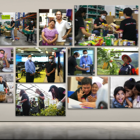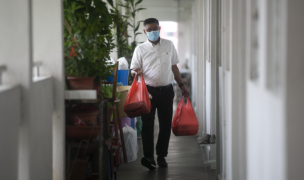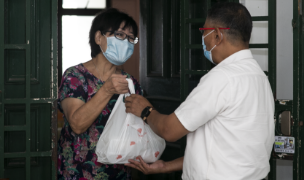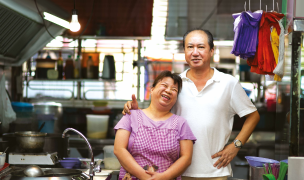When lockdown in India was implemented, these villagers found themselves cut off from their supply chain and stocks of food, and daily essentials dwindled. Their plight did not go unnoticed.
Mr Rahul Mane had not been able to earn enough for far too long to feed his wife and two young children. Worry and stress were becoming constant bedfellows.
He did have some savings to tide this family over, but as the Covid-19 pandemic spread in India and states were going into lockdown, Mr Mane, a daily wage worker, was not able to get the jobs he desperately needed.
So, when he heard from one of his boy’s schoolteacher that a bank would be providing some aid, there was no question what he would do.
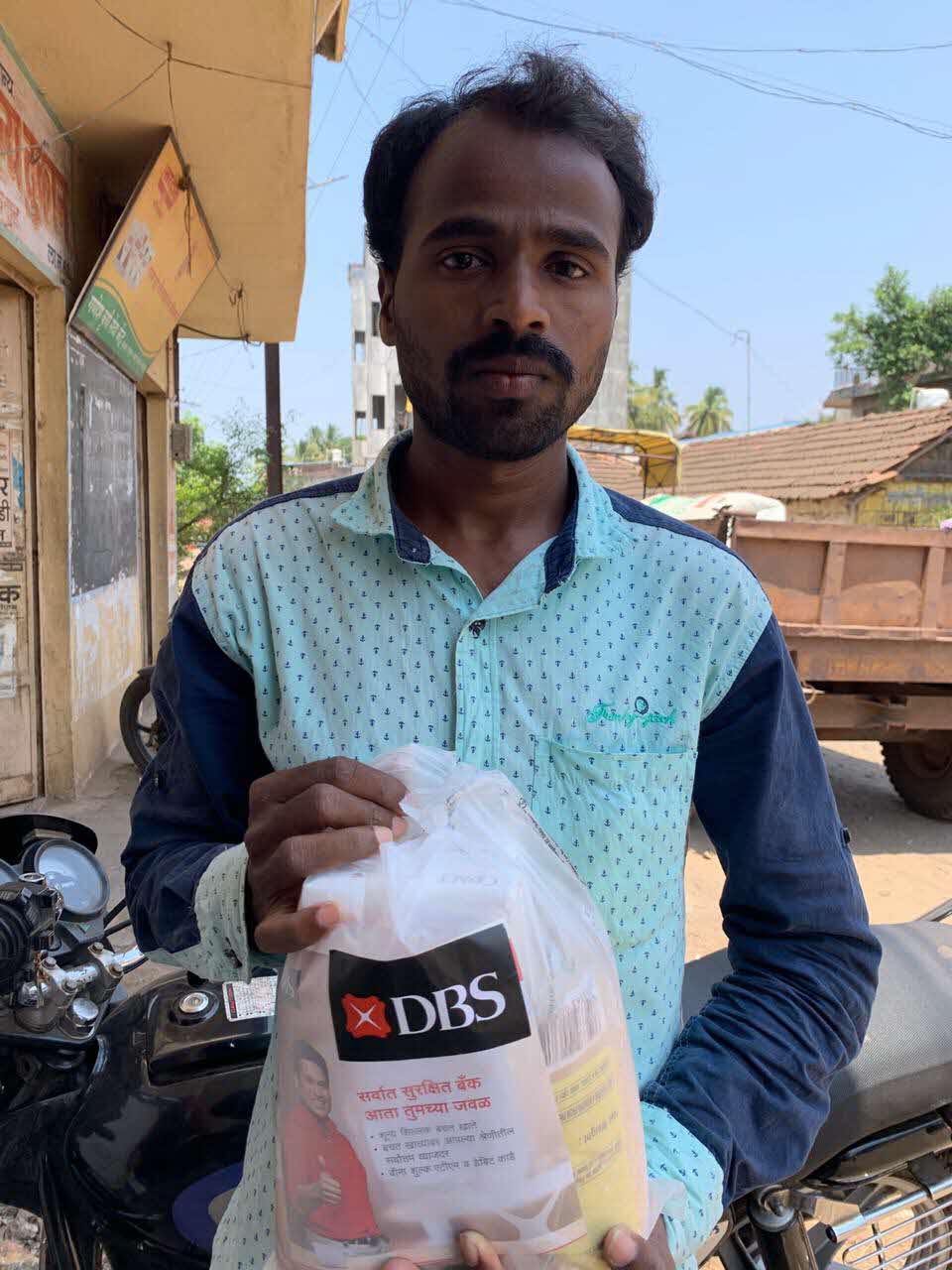
Mr Rahul Mane with a relief kit provided by DBS.
To get the much-needed supplies, he headed to the DBS bank branch in the village of Danwad, a hamlet of 10,000 people in the Kolhapur district of Maharashtra in India. When the 28-year-old got there, an anxious crowd had already gathered outside the bank. Patiently he waited. After several weeks, another few minutes wouldn’t hurt.
When his turn at the queue finally came, Mr Mane’s eye welled-up with tears of relief. “For almost two months, I did not have enough money to buy sufficient food for my family,” he tells Asif Mulla from DBS, who handed him a relief kit containing food supplies. “I am very grateful, thank you.”
Maharashtra has been one of India’s worst-hit states in the ongoing pandemic. When the country went into lockdown on March 24, DBS India, headquartered in Mumbai, was alerted that 30,000 of mostly lower-middle income people in seven rural villages in the state were in dire straits.
“These are mostly hardworking farmers and small business owners who make a modest living,” says Asif, DBS’ man on the ground in Danwad for the distribution. “So, when India went into lockdown, their lives faced a grave disruption. The supply chain from the nearest city came to a halt and so did their livelihoods.”
Covid-19 first hit India at the end of January in Kerala and by the time it arrived in Maharashtra on March 9, the disease already had a spiral effect on several workers like Mr Mane.
With so many people struggling with the basic needs of life, DBS immediately sprang into action to hatch a plan to send relief supplies to the villages.
“We had to find a supplier who could make large quantities available in a timely manner,” says Ryan Pereira, from the Consumer Banking Group, who was instrumental in planning the relief efforts. “The villages had supplies of rice and flour, and they needed other supplementary food.”
Each relief kit contained 1kg of dal (lentils), a litre of cooking oil, four bars of antiseptic soap and a bottle of hand sanitiser. A total of 7,500 kits were needed for as many families across seven villages, including Danwad.
“Although we were coordinating this with one supplier, the quantity we wanted was huge and not available at any one location,” explains Ryan. “We had to get everything from various locations before we were ready to send them off.”
The DBS team hired two 10-tonne trucks and the entire operation from late March to early April was completed in two phases of three days each. Once loaded it took the trucks about eight hours to reach the villages, which were about 400km south of Mumbai.
Says Ryan, “Getting the supplies and packing them into relief kits were the easy parts. To reach them, not so because the nationwide lockdown meant we had to clear checkpoints on the way and convince security forces we were on a relief supply run to stricken villages.”
The outpouring of emotion from thankful villagers who greeted them when they arrived with the supplies was overwhelming. “This was a priceless reward from them to us,” recounts Asif.
Mr Kamble, 50, a community leader in Danwad village, says the village was thankful because the bank not only provided essential supplies in a timely manner, but also reached out to help villagers regardless of whether they were customers or not.
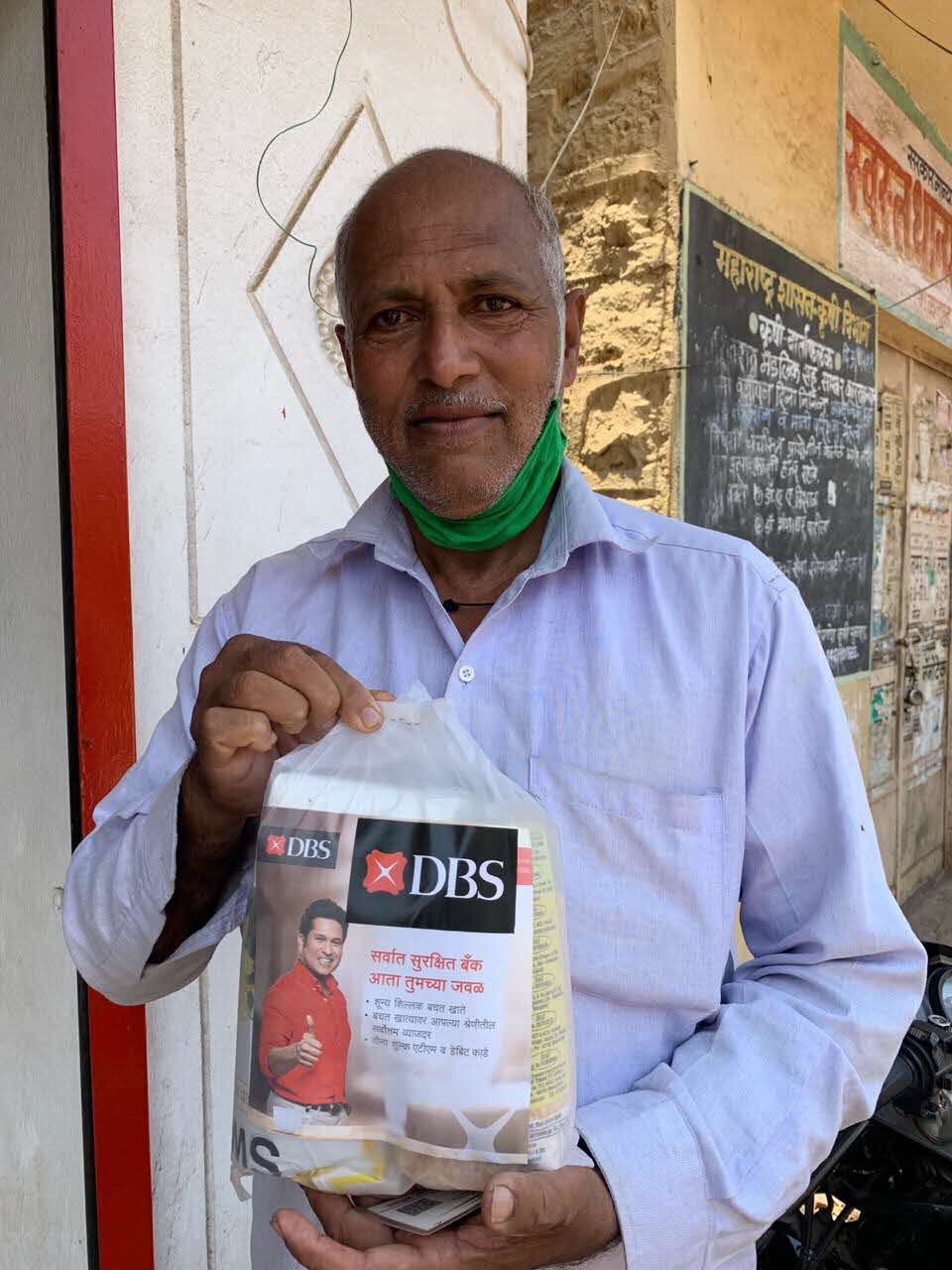
Mr Shashikant Parvate (pictured above), a 65-year-old Danwad villager, adds, “In our time of need, DBS is the only business organisation that has taken an initiative to support us. We are all very grateful!”

